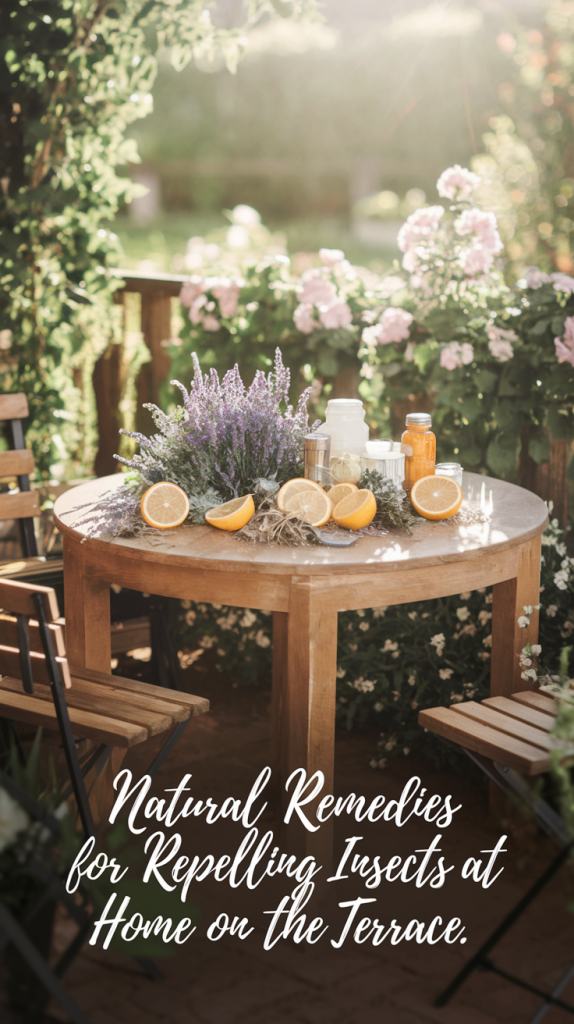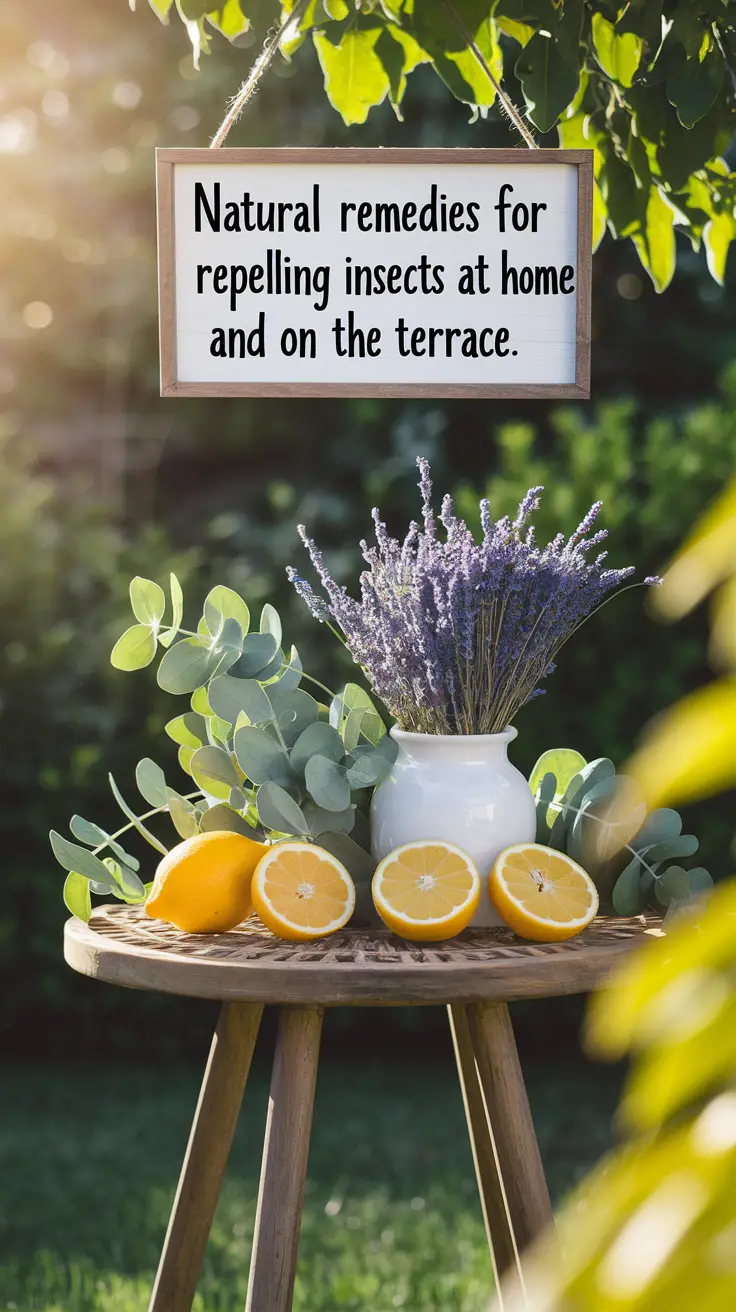
Why resort to yucky chemicals when your kitchen and garden have the answers?
You didn’t know that lavender oil is a more effective mosquito repellent than some of those sprays you can purchase at the store? Or that having basil in a pot by your window keeps flies away all summer long? In 2025, homeowners are ditching chemical repellents and choosing natural for keeping bugs at bay—and they should be.
We’re surrounded by chemicals on a daily basis—in our food, in the air, and yes, in our bug sprays. But you don’t have to trade comfort for safety. In this guide, you’ll discover tried, simple-to-use natural methods to protect your home and patio from flies, mosquitoes, ants, moths, and more.
Who is this for?
- Parents looking for child-safe bug control
- Environmentally aware homeowners
Allergy sufferers
Anyone setting up peaceful nights outdoors without scratching bites
Let’s discover nature’s best defense mechanisms—and how to make them work for you.

Why Abandon Chemical Repellents in 2025?
Health Hazards of Synthetic Insecticides
From DEET to permethrin, most traditional bug sprays carry chemicals that could trigger allergies, breathing problems, or even skin irritation—especially in children and pets. Recent EPA research has cautioned against heavy indoor use.
Environmental Consequences You Never Agreed To
Pesticides don’t stay on the surface of your skin or your patio. They seep into soil, water, and air. Pollinators like bees, essential to our food supply, are especially vulnerable.
Consumer Demand for Natural Protection
As of 2025, over 65% of American households have turned to non-toxic pest solutions. Yearly, year-over-year demand for natural insect repellents jumps 40%, says EcoTrends Research.
How Natural Insect Repellents Work
It’s All About the Scent
Insects are guided by scent receptors. Natural oils like citronella, eucalyptus, and peppermint overwhelm or confuse these receptors, cloaking the signals that attract pests.
Barrier Methods + Smell = Double Defense
A few measures create an actual barrier, some release volatiles oils in the air. The most potent ones do a bit of both?
Fun fact: Citronella prevents carbon dioxide release, which brings mosquitoes close to start with.
Top 10 Natural Remedies for Repelling Insects in 2025
Let’s break down the most effective natural remedies for repelling insects, from kitchen staples to garden favorites.
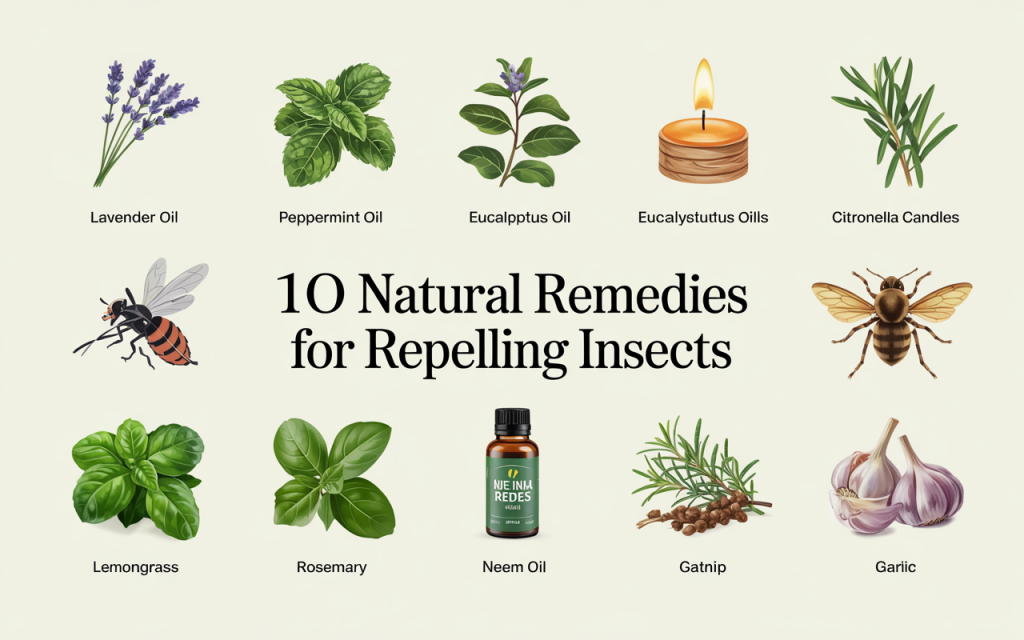
1. Lavender Essential Oil
-
Targets: Moths, mosquitoes, fleas
-
Usage: Diffuse in rooms, dab on skin, or spray diluted with water on linens
-
Bonus: Promotes relaxation and better sleep
2. Lemon and Clove Combo
-
Targets: Flies, mosquitoes
-
How to use: Slice a lemon in half and insert 6–8 cloves into each side. Leave near doors or windows.
-
Natural air freshener, too!
3. Vinegar + Tea Tree Oil Spray
-
Targets: Ants, gnats
-
Recipe: 1 cup white vinegar + 10 drops tea tree oil + water
-
Safe for countertops and floors
4. Peppermint Oil
-
Targets: Ants, spiders, mosquitoes
-
Application: Mix with water and spray around entry points
-
Bonus: Leaves a fresh scent in bathrooms and kitchens
5. Citronella Candles (DIY or store-bought)
-
Best for patios and terraces
-
Burns steadily and wards off mosquitoes within 3–6 feet
-
Look for soy-based wax for an eco-friendlier burn
6. Basil in Pots or Vases
-
Naturally repels flies and mosquitoes
-
Grows well indoors and on sunny terraces
-
Crush leaves occasionally to release scent
7. Cucumber Slices for Ant Control
-
Lay slices at entry points
-
Ants hate the bitterness in cucumber peels
-
Safe around pets and kids
8. Rosemary Burn Bundles
-
Outdoor method: Burn dry rosemary stalks in a fire-safe dish
-
Smoke drives off flying insects
-
Adds ambiance to outdoor dinners
9. Eucalyptus Oil
-
Great for skin-safe use when diluted
-
Also effective against ticks
-
Popular ingredient in natural sprays
10. Apple Cider Vinegar Fruit Fly Trap
-
Mix vinegar + dish soap in a small dish
-
Attracts and drowns fruit flies
-
Hide behind the fruit bowl for 24/7 protection
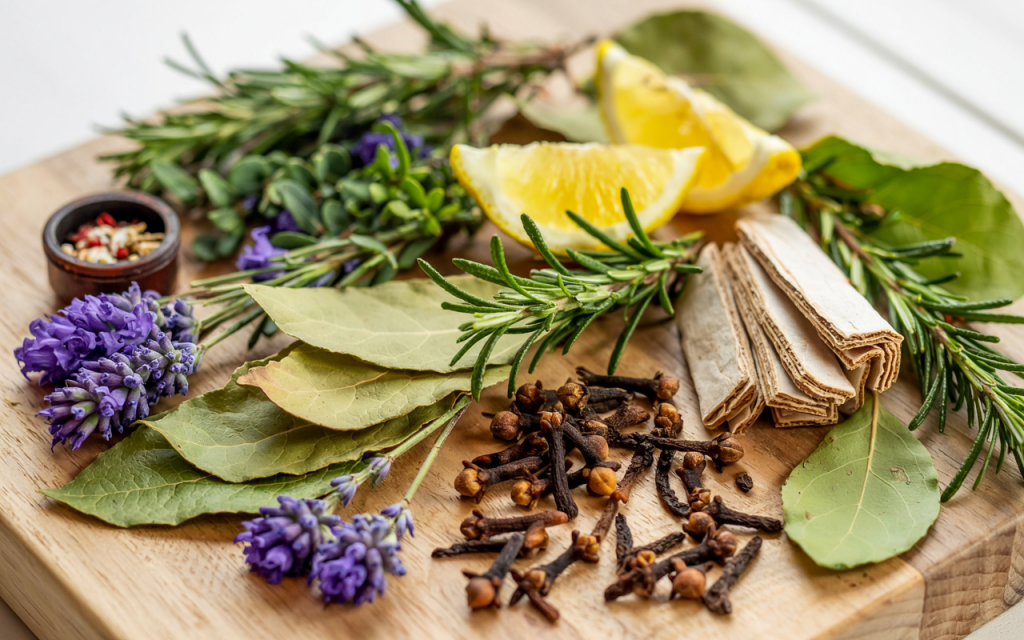
Quick Comparison of Remedies
| Natural Remedy | Effective Against | Indoor/Outdoor | Safety Level | Scent Profile |
|---|---|---|---|---|
| Lavender Oil | Moths, fleas, mosquitoes | Indoor | High | Floral, calming |
| Lemon & Clove | Flies, mosquitoes | Both | High | Citrus-spice |
| Peppermint Spray | Ants, spiders | Both | Medium | Sharp, minty |
| Citronella Candles | Mosquitoes | Outdoor | High | Clean-lemon |
| Apple Cider Trap | Fruit flies | Indoor | High | Tangy |
❓What’s your go-to natural bug solution? Let us know in the comments below.
Best Insect-Repellent Plants for Your Home and Balcony
Plant Your Defense
Did you know your garden can double as an insect barrier? These natural insect-repelling plants offer a stunning aesthetic and reliable protection.
-
🌿 Mint – Great near doors, repels ants and mosquitoes
-
🌼 Marigolds – Deters aphids and flies, lovely in borders
-
🍋 Lemongrass – Source of citronella, fast-growing, loves the sun
-
🌸 Geraniums – Fights mosquitoes, adds color
-
🌱 Rosemary – Hardy and smells amazing when bruised
Pro Tip: Location, Location, Location
Position planters near windows, patio furniture, and doorways. The nearer to foot traffic, the more potent the barrier.
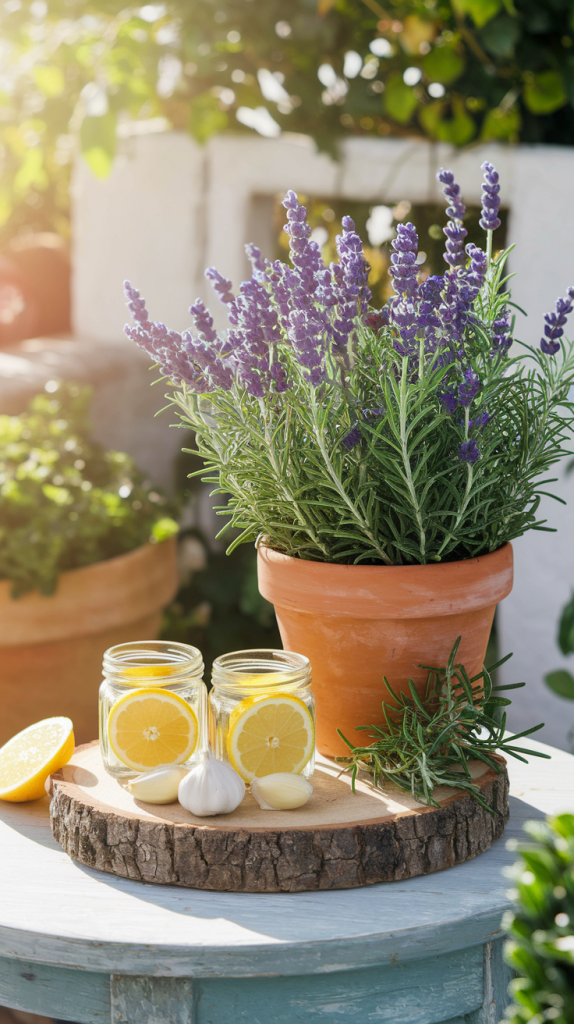
DIY Tips for a Bug-Free Terrace
Natural Candles
Make your own candles using soy wax, essential oils (citronella, lavender), and a wood wick. Stylish and effective!
Homemade Bug Traps
Mason jars with a paper cone and sugar water or vinegar catch flies unobtrusively.
Scented Sachets and Hanging Bundles
Fill aeration bags with dried lavender, mint, and cloves. Hang under tables or near windows for subtle protection from scents.
Frequently Asked Questions About Natural Insect Repellents
Can I use essential oils in the presence of babies or pets?
Essential oils in general need to be well diluted before being used. Keep eucalyptus and tea tree oils away from cats. Consult your vet or pediatrician always.
Do these methods work as well as store-bought repellents?
In many cases—yes! Especially in enclosed or semi-enclosed spaces. Outdoor areas may need combined solutions (e.g., candles + plants).
How long do natural repellents last?
Sprays typically last 1–2 hours. Reapply as needed. Plants offer ongoing support, especially when leaves are rubbed or bruised.
Trends to Watch in 2025 for Natural Insect Control
-
Smart aroma diffusers that use essential oils based on time of day
-
Organic pest control kits with refillable natural formulas
-
Bug-repelling home decor, like citronella-infused cushions
-
Influencer tips: #EcoLiving and #TerraceHacks trending on TikTok
Conclusion
What‘s the Best Natural Remedy for You?
For instant action indoors, employ peppermint or lavender sprays. For long-term solutions on the terrace, employ a combination of citronella candles, basil pots, and burning rosemary bundles.
Remember: nature already gave us the tools—we just need to employ them properly.
